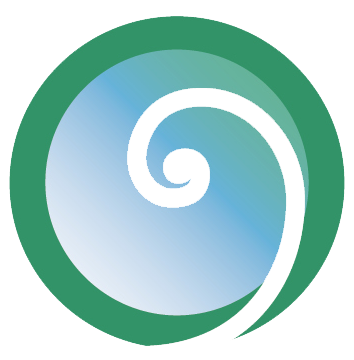I Don’t Know
On the wall in her home office my mother used to have a poster of an extreme closeup of a peacock’s face with the words: I said, I don’t know. It hung there as a reminder and to give permission. In our family, admitting that you didn’t have an answer -- to anything -- was rare. We survived on rigid expectations and plans for how things should be, and it didn’t feel safe to wonder or be unsure. So during my mother’s early years of getting sober and learning how to love herself a little more, she embraced the notion that it is okay to say, “I don’t know.”
I used to chuckle with appreciation whenever I visited from college and saw that poster. It reflected my own growing understanding of how much I didn’t know and understand, humbled as I was by all the new and expanding viewpoints and bodies of knowledge I was encountering. Like many young people during the early adult years, I pretended I knew what I wanted to study and do with my life, but I really hadn’t a clue what would make me happy or how to bring that about once I knew.
Fast forward 40-plus years, and in many ways I am in the same boat today. My work is shifting and taking shape in new forms, and due to many forces it appears that some of what I was doing even as recently as two years ago is less relevant or viable. The idea that I can craft a plan and follow it toward some envisioned outcome is largely an illusion. The expectation that what I create is solid and unchanging is also an illusion. Visioning, building, offering, delivering, and evaluating are all necessary phases of action, whether I’m guiding a 15-minute meditation or directing an 8-week program. But how it will unfold and what occurs as a result is completely out of my hands. If the vessel I craft does not set sail, it can seem like a failure, and in a certain respect it is.
The difference between 40 years ago and now is that I recognize how success and failure are both teachers. Whether the journey was supremely successful or failed to launch at all, the learning happens in the evaluation phase. One teaching I’ve gleaned over the years is that the willingness to sit with “I don’t know” is bound to increase a sense of wonder, curiosity, authentic interest. And that’s a good attitude to bring to all phases of creative endeavor, especially evaluation.
I’m sure we’d all like to set a course, turn on autopilot and say, “job well done.” I feel that urge all the time. There is a great deal of benefit from resisting that urge, however. First, that autopilot is very poorly programmed and its systems probably haven’t been updated recently. You’re in different territory now. It is likely to run the ship aground. Second, try as you might, you won’t be able to ignore the weather. You’ll still be buffeted by strong winds and high waves, or the doldrums when there is zero wind to carry the ship forward. By going on autopilot you thought you’d free yourself from having to deal with these forces. You were wrong. Now you’re in the midst of conditions but you’re not piloting your own vessel. Third, it’s not about the destination, it’s about the journey, and how you relate to it as you go along. That is a cliché for a reason.
Thomas Merton wrote, "My Lord God, I have no idea where I am going. I do not see the road ahead of me. I cannot know for certain where it will end. Nor do I really know myself, and the fact that I think that I am following your will does not mean that I am actually doing so. But I know . . . you will lead me by the right road though I may know nothing about it. Therefore, will I trust you always though I may seem to be lost and in the shadow of death. I will not fear, for you are ever with me, and you will never leave me to face my perils alone."
The gifts of not knowing are faith and humility. It takes faith to lay a foundation of trust, take it all step by step. And because this way of trusting is shaky for most of us, humility steps up as a support, reminding us that our great plans and dreams are just one tiny component in a vast pattern of interconnection which our puny minds cannot fully comprehend. So it’s safe to let go, dance with the changes, and try not to take it too personally.


